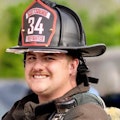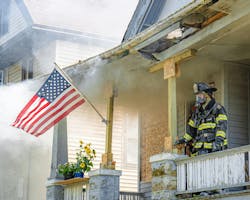The Declaration of Independence & Fire Service Ethics
Key Takeaways:
- Courage in the fire service mirrors the Founding Fathers’ sacrifices—rooted in duty, not ego or reward.
- Leadership in the fire service is built on moral responsibility, integrity, and accountability, much like the nation’s founding ideals.
- The Declaration of Independence, which was adopted in 1776, not only established a new nation but laid the foundation for a public service ethos that still guides us today.
Fairness and equality
When Thomas Jefferson wrote that all people are “endowed by their Creator with certain unalienable Rights” and listed “Life, Liberty, and the pursuit of Happiness,” he put life first. For the fire service, life is the core of our mission. Every time that we respond to a fire, a medical call or a motor vehicle accident, we uphold the principle that life is sacred and worth protecting. In many ways, we are modern guardians of that most basic right. This connection between founding principle and front-line practice isn’t symbolic. It’s real, operational and deeply embedded in the work that we do every shift.
Equally powerful is the declaration’s assertion that “all men are created equal.” In the fire service, that translates directly into how we operate. Fires don’t discriminate—and neither do we. When we respond to a structure fire, cardiac arrest or traffic collision, we don’t stop to ask who someone is. We serve everyone with the same level of dedication and care, regardless of status, background or circumstance. This concept is embedded in our training, our conduct standards and our public image. In practice, it means responding with respect, whether we’re entering a mansion or a tent that’s under a bridge. This expectation of fairness and equality isn’t new to the fire service; it’s part of the very DNA of American ideals.
Courage
The Founding Fathers, many of whom paid a steep price for signing the declaration, understood what it meant to sacrifice for a greater cause. Many lost property, freedom or even their life in the pursuit of a just and independent nation. Their willingness to act without the guarantee of reward or recognition mirrors the commitment that we see in firefighters today. Long hours, missed holidays, sleepless nights, emotional stress: These are realities that we accept, not because we expect praise but because the mission demands it. This quiet, unrelenting service is part of what defines the fire service, and it reflects the same spirit of duty that launched the nation.
Courage is another parallel. In 1776, it took courage to stand up to an empire. Today, it takes courage to walk into a burning building, to cut into a mangled vehicle not knowing the outcome and to initiate care for someone who is in cardiac arrest while their family watches in fear. Courage in the fire service isn’t about bravado. It’s about discipline, clarity and action in the face of danger. Just like in 1776, that kind of courage often is grounded in conviction, not ego.
Leadership
Leadership in the fire service is a direct continuation of the American ideal of moral responsibility. Just as the declaration didn’t guarantee a perfect government but established a framework for ethical governance, fire officers and senior firefighters are called to create frameworks for safe operations, professional conduct and public service. The lessons that are passed down from the founding generation—integrity, accountability and the prioritization of others—are the same values that we seek to instill in every new recruit and future leader.
By revisiting the principles of the declaration, we aren’t engaging in nostalgia; we’re reinforcing the foundations of our profession. These ideals aren’t abstract. They’re found in our firehouse culture, our commitment to one another and our service to the public. We protect lives because life matters. We treat everyone equally because dignity matters. We sacrifice without recognition because duty matters. We lead in the heat of the moment because courage matters.
Founding Fathers’ values translate
You won’t find the word “firefighter” in the Declaration of Independence, but declaration’s spirit is embedded in everything that we do. As we continue to develop leaders, strengthen our culture and hold each other to the highest standards, let’s not forget that we’re part of something much bigger than ourselves. We aren’t just first responders. We are stewards of an American tradition that began with a bold declaration and continues every time that we answer the call.
About the Author

Trent Salyers
Trent Salyers is a career firefighter with the Scottsburg, IN, Fire Department (SFD). He began his fire service career in high school as a volunteer with the Jennings Township Fire Department in Austin, IN, and joined the SFD in 2019.
